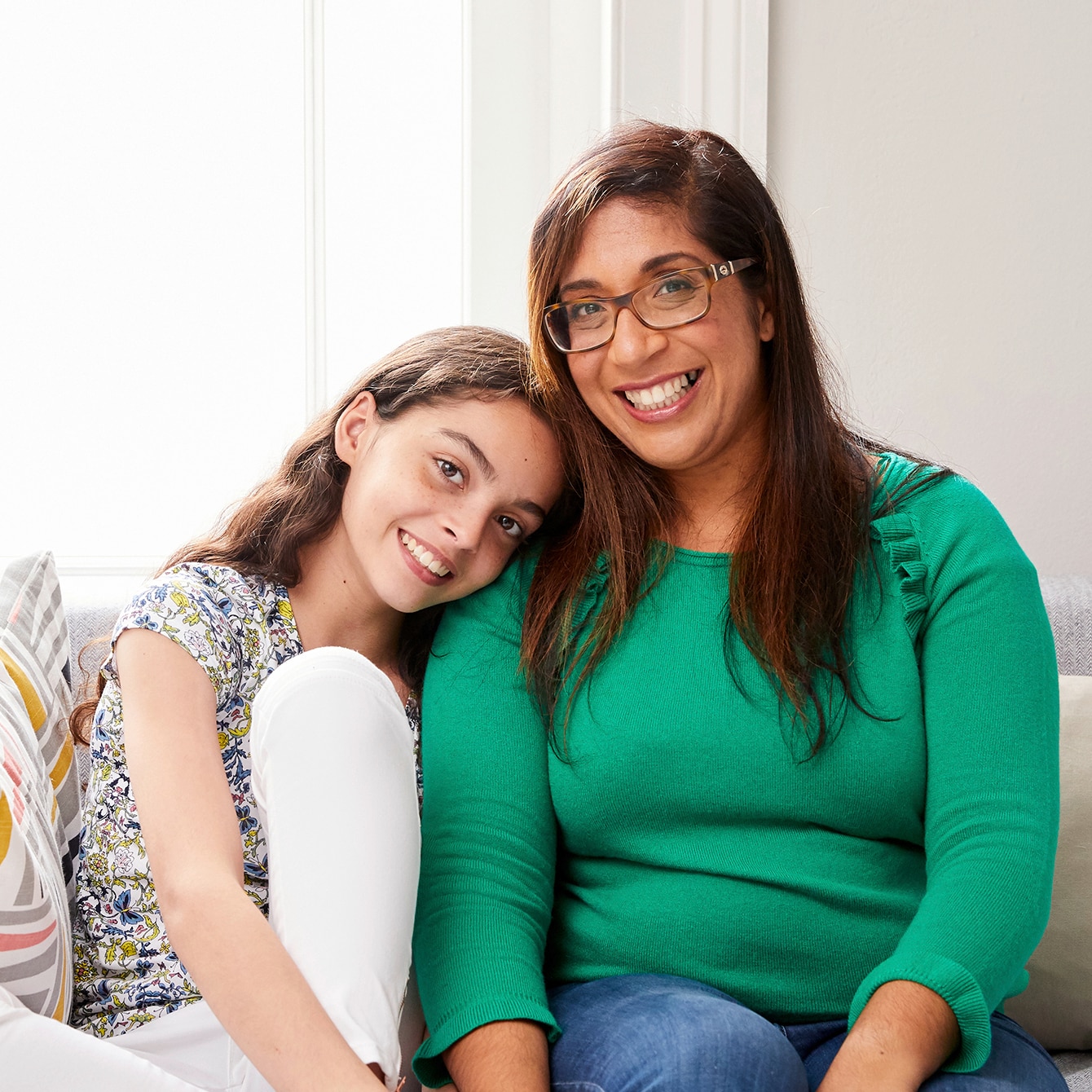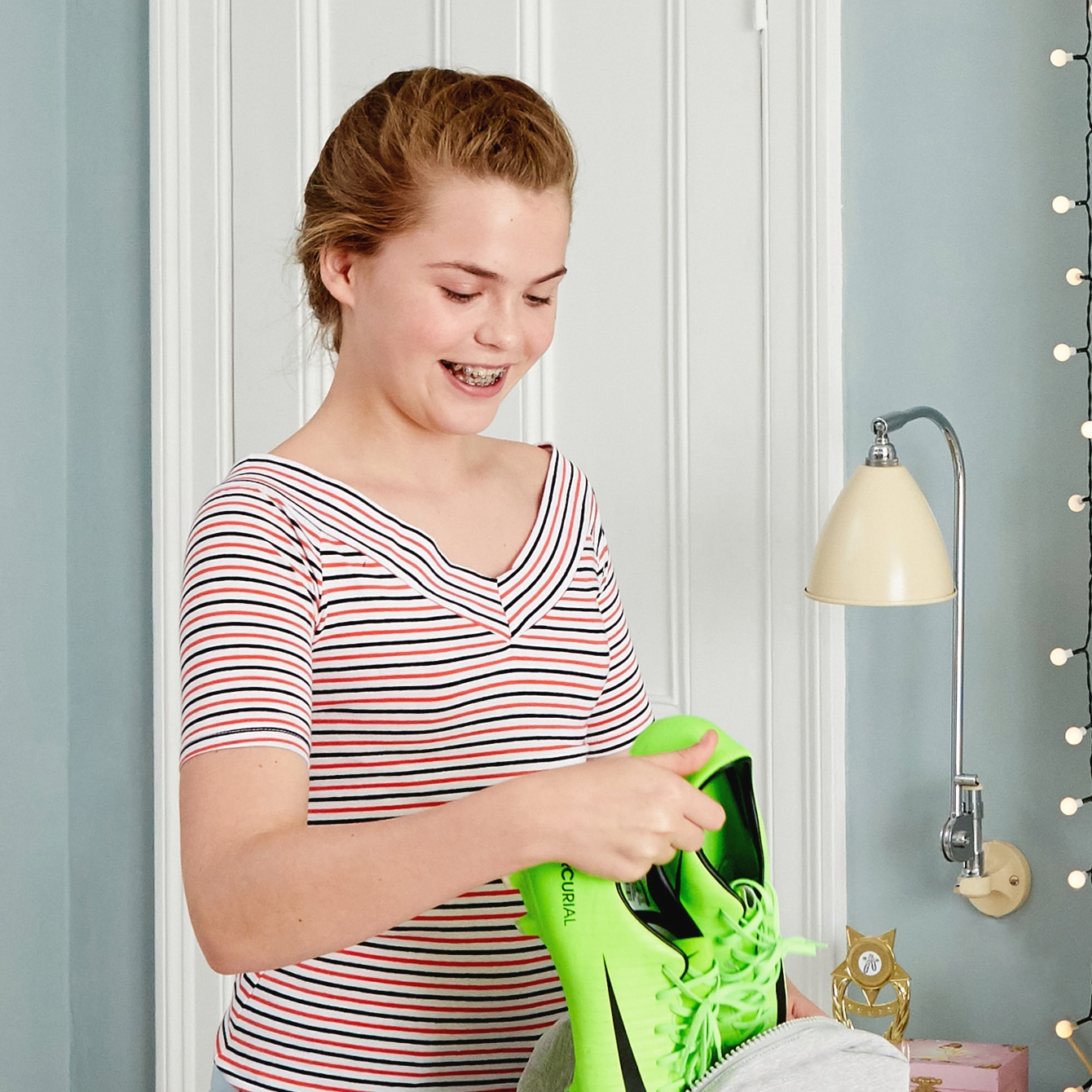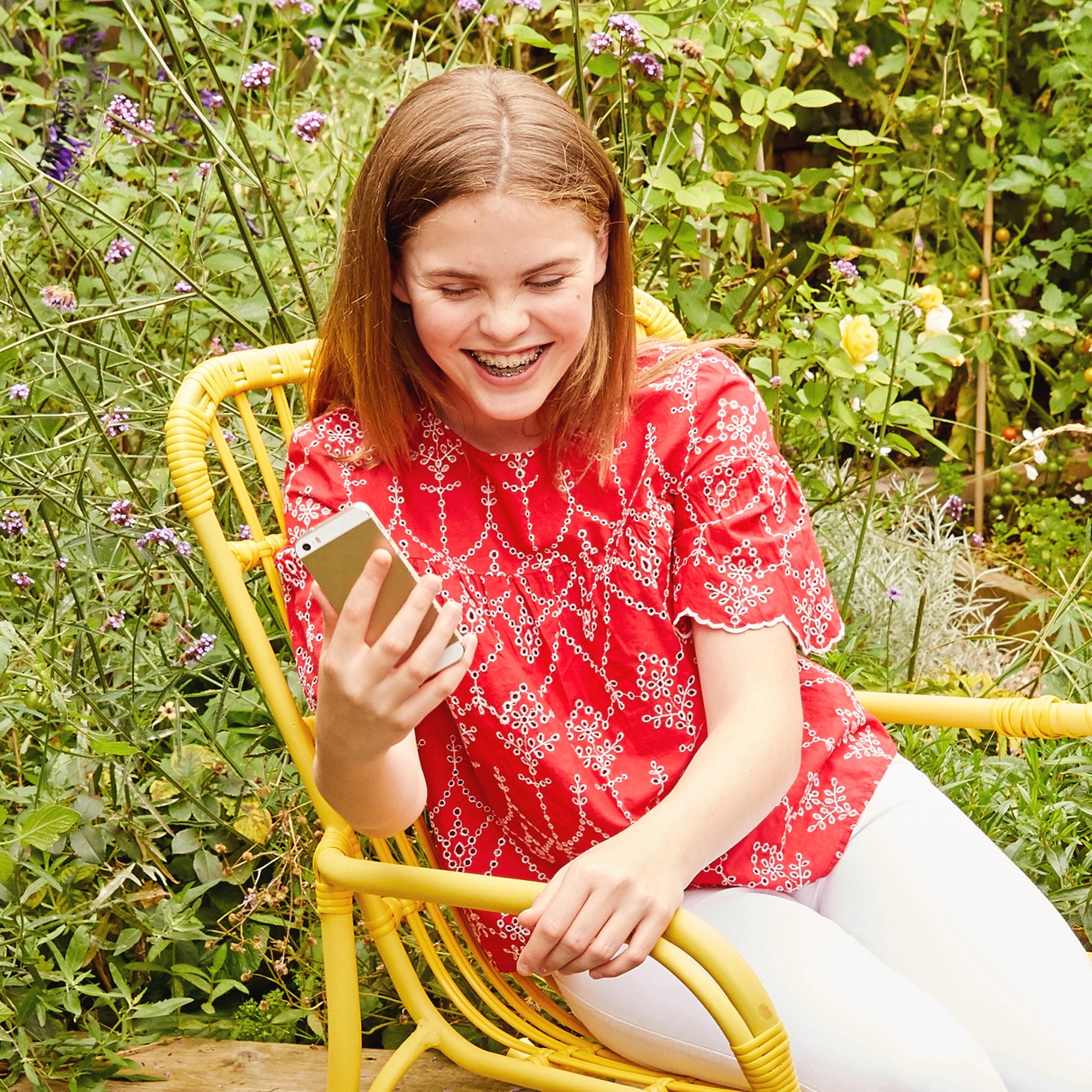Everyone wants their child to be happy. When adolescent anxieties arrive, learning relaxation skills or turning to a mindfulness activity could help your girl feel happy from the inside out.
What’s going on in a teenage girl’s brain?
Curious things happen when our little girls become teenagers. They bloom in so many ways, but may also start to pull away or become withdrawn, leaving parents to wonder 'what happened to my happy, carefree girl?'
The shift you see in your daughter’s personality and mood is not just about hormones, her brain is actually undergoing an amazing rewiring process during the teen years. With the right experiences, new neural connections will allow her to stretch her abilities and develop into a thoughtful, empathetic and creative human being.
But the desire to conform can prevent teenage girls from being happy as they are. As they grow up, they will naturally compete with and compare themselves to other girls. They begin to look outward for affirmation of their self-worth and for things to be happy about. Fitting in and being accepted often become more important than being with family or enjoying hobbies. The desire to be like everybody else can cause them to lose an authentic sense of self.
At the same time, friendship groups and the media create beliefs around beauty and ‘being cool’, fuelling the myth that conforming will lead to happiness. Buying into these myths can reinforce ‘negativity bias’ in the brain, making girls super-sensitive to differences, which they see as flaws or dangers.
Many girls start to believe they can only be happy if they…
• Are skinny
• Have bigger boobs
• Are super-trendy
• Say the right things
• Have a boyfriend
• Get straight As in class
• Are the best on the team
• Get 100 ‘likes’ on their selfies.
It’s important to help girls realise that ticking items off a wish list, isn’t the key to happiness. In fact, they need to understand it’s impossible to feel happy all the time – because feeling happy is a momentary experience.
Instead, they need to learn to appreciate those moments, and to remember and reflect on them. Encouraging teenagers to consider the joyful moments during their week will help them appreciate that life has its ups and downs.
Body-confidence tools: how to be happier through mindfulness
Mindfulness – the practice of ‘non-judgemental awareness’ – may help girls cope with external pressures to look and be a certain way. Research shows that mindfulness skills have many benefits, including boosting resilience, happiness and wellbeing, to help your daughter deal with appearance-related anxieties.
There are many kinds of mindfulness practices (see below for examples) and it’s now being taught in some schools and medical centres. There's no better time to teach mindfulness skills – and being happy with yourself as you are – than when adolescent girls are dealing with the challenges of fitting in.
Mindfulness for self-confidence and self-esteem
Dr Christopher Willard🔗, psychologist and author of Child’s Mind, teaches mindfulness practices to children and teens. “We have a comparing mind,” he explains. “If you consider that social media is largely driven by teenagers, and that they are exposed to it 24/7, their attention becomes hyper-focused on what’s external, such as ratings and ‘likes’.”
Although taking control of how they present themselves can be a highly creative activity for many girls, Dr Willard points out, “This can be at the expense of paying attention to what’s going on inside, honing a gut instinct, understanding social cues and tapping into heartfelt awareness of other qualities a girl may have that will serve her over a lifetime, such as generosity, loyalty and kindness.”
When girls learn to be aware of what they are experiencing inside and out, without being self-critical, they are better able to withstand pressures from the wider world.
One step towards happy teenagers, is for their parents to practise mindfulness too. Mum and dad can shape their daughter’s ability to experience joy and calm, helping her establish neural connections for resilience, happiness and compassion.




